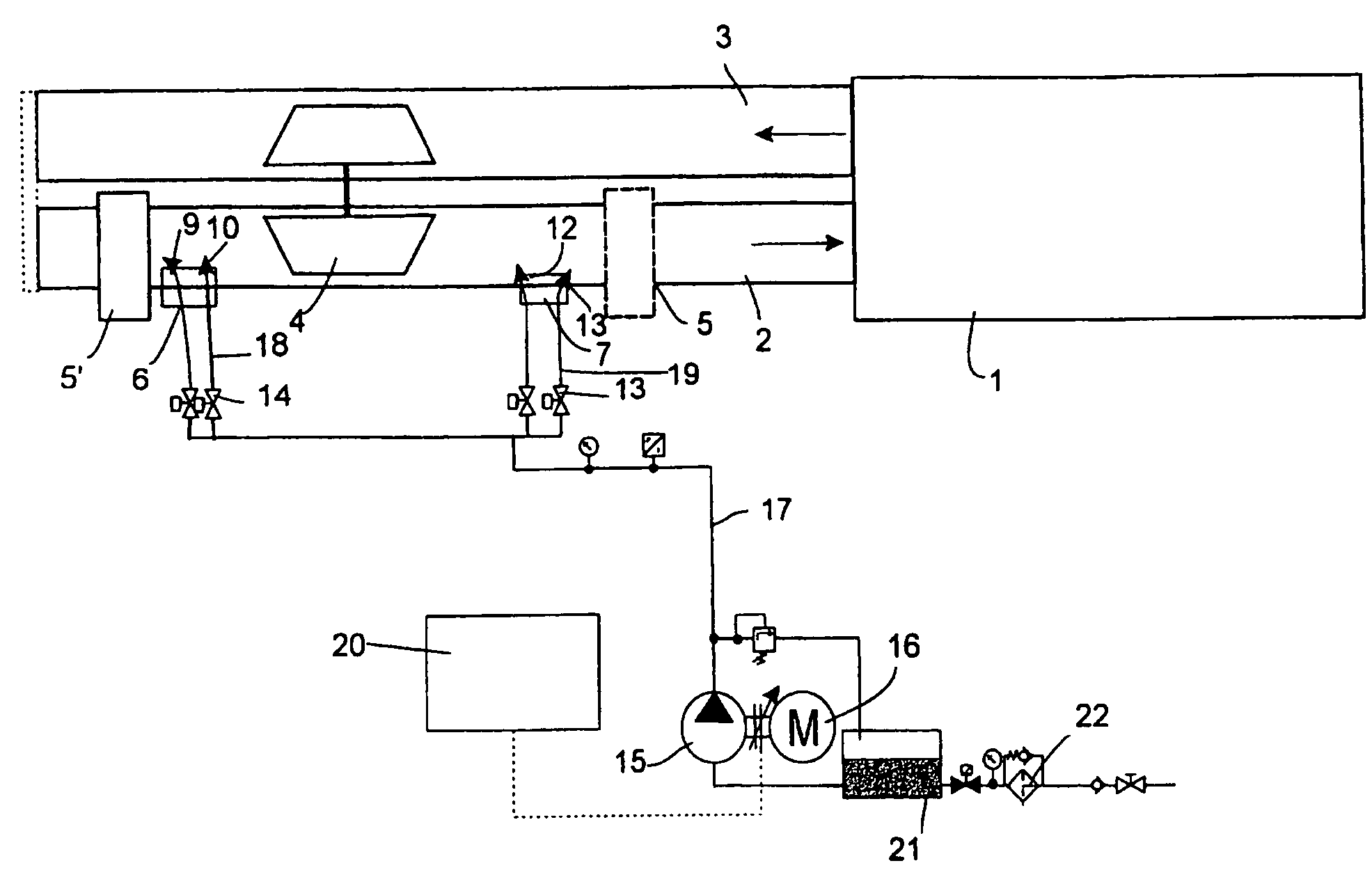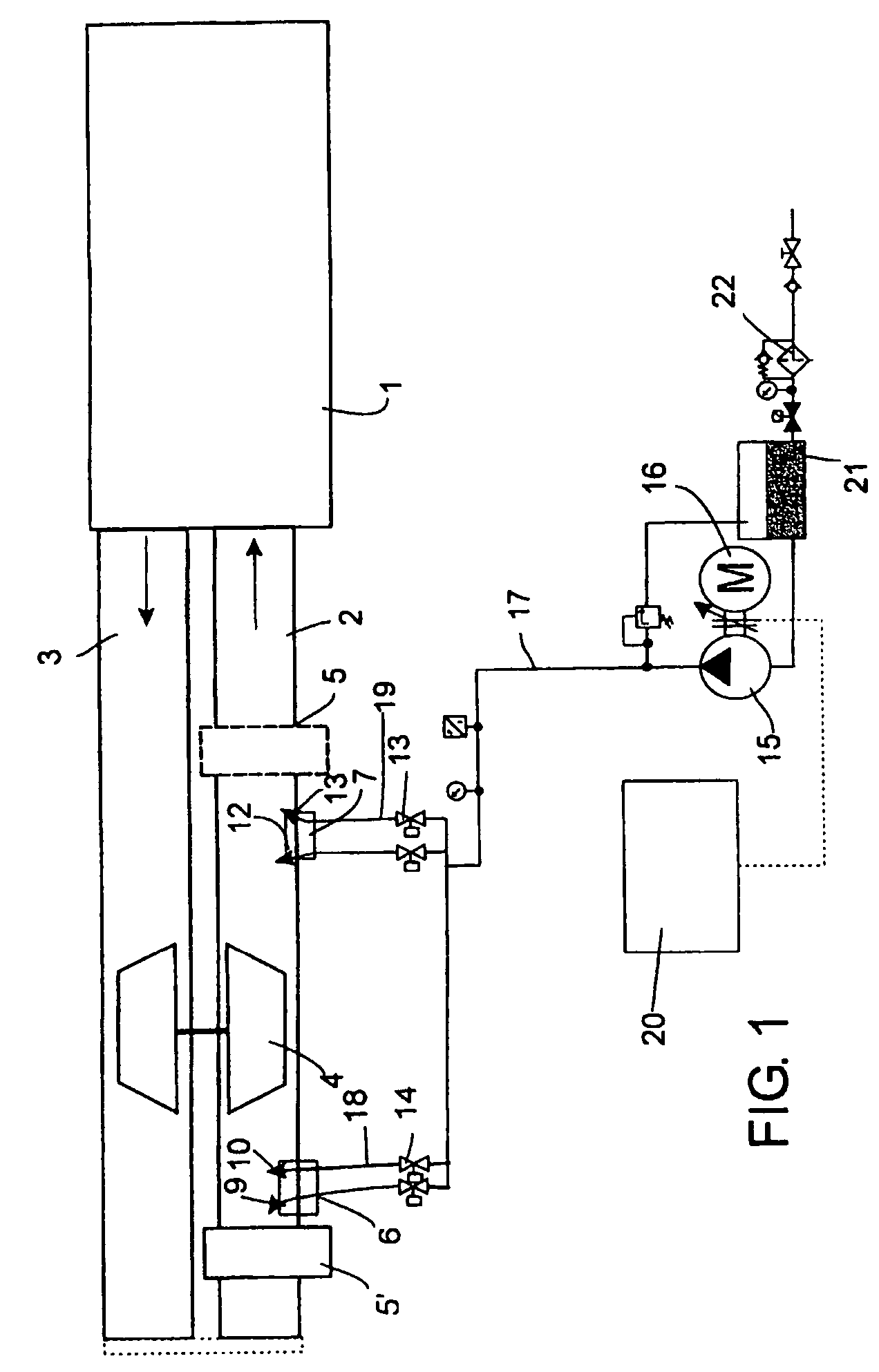Spraying method and apparatus
a technology of spraying and nozzle, which is applied in the direction of mechanical equipment, combustion-air/fuel-air treatment, machines/engines, etc., can solve the problems of increasing water consumption, increasing combustion temperature, and additional waste, and achieves good and efficient humidification of intake air, reduces the volume of the turbocharger, and increases the efficiency of the turbocharger
- Summary
- Abstract
- Description
- Claims
- Application Information
AI Technical Summary
Benefits of technology
Problems solved by technology
Method used
Image
Examples
Embodiment Construction
[0016]FIG. 1 is a diagrammatic representation of a apparatus according to the invention, installed in connection with the air intake duct 2 of a piston engine, such as a diesel engine. The air intake duct 2 and the exhaust gas duct 3 are shown in a simplified form in the FIGURE. The engine presented in the FIGURE is provided with a turbocharger 4, which feeds air under positive pressure into the air intake ductwork 2 of the engine. To reduce the nitrogen oxide emissions of the engine, the air intake ductwork is provided with at least one spraying head 6, 7 fitted to supply water mist into the intake ductwork 2. Turbocharged engines are traditionally provided with a charge-air intercooler 5, which in the FIGURE is depicted in broken lines.
[0017]According to the invention, the intake air is heated by means of a heat exchanger element 5′, such as an intake air intercooler relocated to the appropriate position and converted to function as a heater as well, e.g. by providing it with equi...
PUM
 Login to View More
Login to View More Abstract
Description
Claims
Application Information
 Login to View More
Login to View More - R&D
- Intellectual Property
- Life Sciences
- Materials
- Tech Scout
- Unparalleled Data Quality
- Higher Quality Content
- 60% Fewer Hallucinations
Browse by: Latest US Patents, China's latest patents, Technical Efficacy Thesaurus, Application Domain, Technology Topic, Popular Technical Reports.
© 2025 PatSnap. All rights reserved.Legal|Privacy policy|Modern Slavery Act Transparency Statement|Sitemap|About US| Contact US: help@patsnap.com


